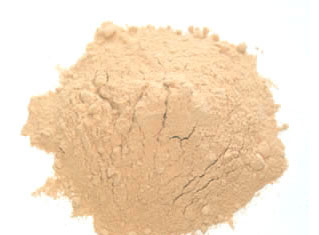Free Shipping - 48hrs Only | Use Code: FREESHIP
Ends 26/04 11:59PM AEST Min spend $79
What is Maca?
Maca (Lepidium meyenii) is a plant that has been used for approximately 2000 years. Natives endorse the consumption of this herb to increase stamina, strength, fertility, and sex drive. Over the years, maca has gained popularity in the western world among athletes and those wishing to boost their sex life. Scientific studies are available on the efficacy of maca, but research is still in its infancy.
Where Does Maca Come From?
Maca originates from the Peruvian mountains
Maca Benefits
Although it's still early days, there appears to be some positive results from the use of maca as a health supplement. There have been promising studies to show that maca may have an effect in providing additional energy to athletes, which may improve stamina and endurance. This would be beneficial to both endurance athletes and possibly bodybuilders looking to squeeze out one extra rep. However, it seems that what is far more studied, within the scientific community, is the effect of maca on sexuality and fertility. There appears to be a fair amount of information that supports the idea of maca having an aphrodisiac effect, as well as making both men and women more potent when trying for a family. So if you're after a little extra boost to your performance in the gym or in the bedroom, maca may be the supplement you're looking for.
Maca Benefits for Stamina
Stone et al. (2009) have published a promising pilot study into the effect of maca on endurance and stamina. It was shown that cyclists supplemented with maca were able to shave off over a minute, on average, from their 40 km times. Unfortunately no other similar studies have yet been conducted.
 Maca Benefits for Libido
Maca Benefits for Libido
Other than the improvement in cycling performance, the maca supplemented athletes also reported an increase in sex drive (Stone et al, 2009). Supplemented groups were found to engage in significantly more sexual activity than a placebo group. This finding is supported by a Peruvian study with healthy men (Gonzales et al, 2002). Even more impressive is the claim that maca may alleviate erectile dysfunction. It has been shown that men with mild erectile dysfunction showed higher levels of improved penile function compared to those receiving a placebo (Zenico et al, 2009). Improvements in sexual function are not exclusive to men, women have also been found to be affected by maca. Brooks et al (2008) reported the ability of maca in reducing psychological symptoms of sexual dysfunction in menopausal women.
There are no solid theories to explain the mechanism behind these effects, as sex hormone levels are often not affected by maca supplementation. Yet, research suggests that maca may even improve male fertility. It has been reported that men showed increased sperm count and motility as a result of maca supplementation (Gonzales, 2001). This is supported by studies in rats, which showed that sperm production starts to increase as early as one day after treatment.
Among the human trials, there have been numerous animal trials that also show the positive effects of maca. Maca has been responsible for an increase in the sexual performance of rats (Cicero, 2001). Female fertility also appears to be improved with maca. Female rats supplemented with maca have been reported to give birth to larger litter sizes.
Maca Negatives and Side Effects
There have been no reported side effects to maca, but the reason for this may be because this is an area that has not been well studied. More research is needed in this area, as well as in the operational mechanisms of maca.
Consumers of this product often give it positive reviews. However, some criticisms include its unusual taste which not all people enjoy. As maca is purchased as a powder, it is often directed to be mixed into a shake, this would do a good job of dulling the taste.
Maca Recommended Doses and Ingredient Timing
Doses of around 1500 to 2000 mg/day have proven to be effective. They may be divided up into smaller servings and intake can be spread through out the day.
Maca Supplements
Maca is a relatively new comer to the supplement market. It can be found as a stand-alone maca supplement. However It is not often found in many other supplements.
Brooks et al (2008): Beneficial effects of Lepidium meyenii (Maca) on psychological symptoms and measures of sexual dysfunction in postmenopausal women are not related to estrogen or androgen content. Menopause 15: 1157-1162.
Cicero (2001), Lepidium meyenii Walp. improves sexual behaviour in male rats independently from its action on spontaneous locomotor activity. Journal of Ethnopharmacology, 75: 225-229.
Gonzales et al (2001), Lepidium meyenii (Maca) improved semen parameters in adult men. Asian Journal of Andrology. 3: 301-3.
Gonzales et al (2002), Effect of Lepidium meyenii (MACA) on sexual desire and its absent relationship with serum testosterone levels in adult healthy men. Andrologia 2002, 34:367-372.
Gonzales et al (2006), Effect of Black maca (Lepidium meyenii) on one spermatogenic cycle in rats. Andrologia, 38: 166-172.
Ruiz-Luna et al (2005), Lepidium meyenii (Maca) increases litter size in normal adult female mice. Reproductive Biology and Endocrinology, 3: 3-16
Stone et al (2009), A pilot investigation into the effect of maca supplementation on physical activity and sexual desire in sportsmen. Journal of Ethnopharmacology, 126: 574-576.
Zenico (2009), Subjective effects of Lepidium meyenii (Maca) extract on well-being and sexual performances in patients with mild erectile dysfunction: a randomised, double-blind clinical trial. Andrologia, 41: 95-99.
